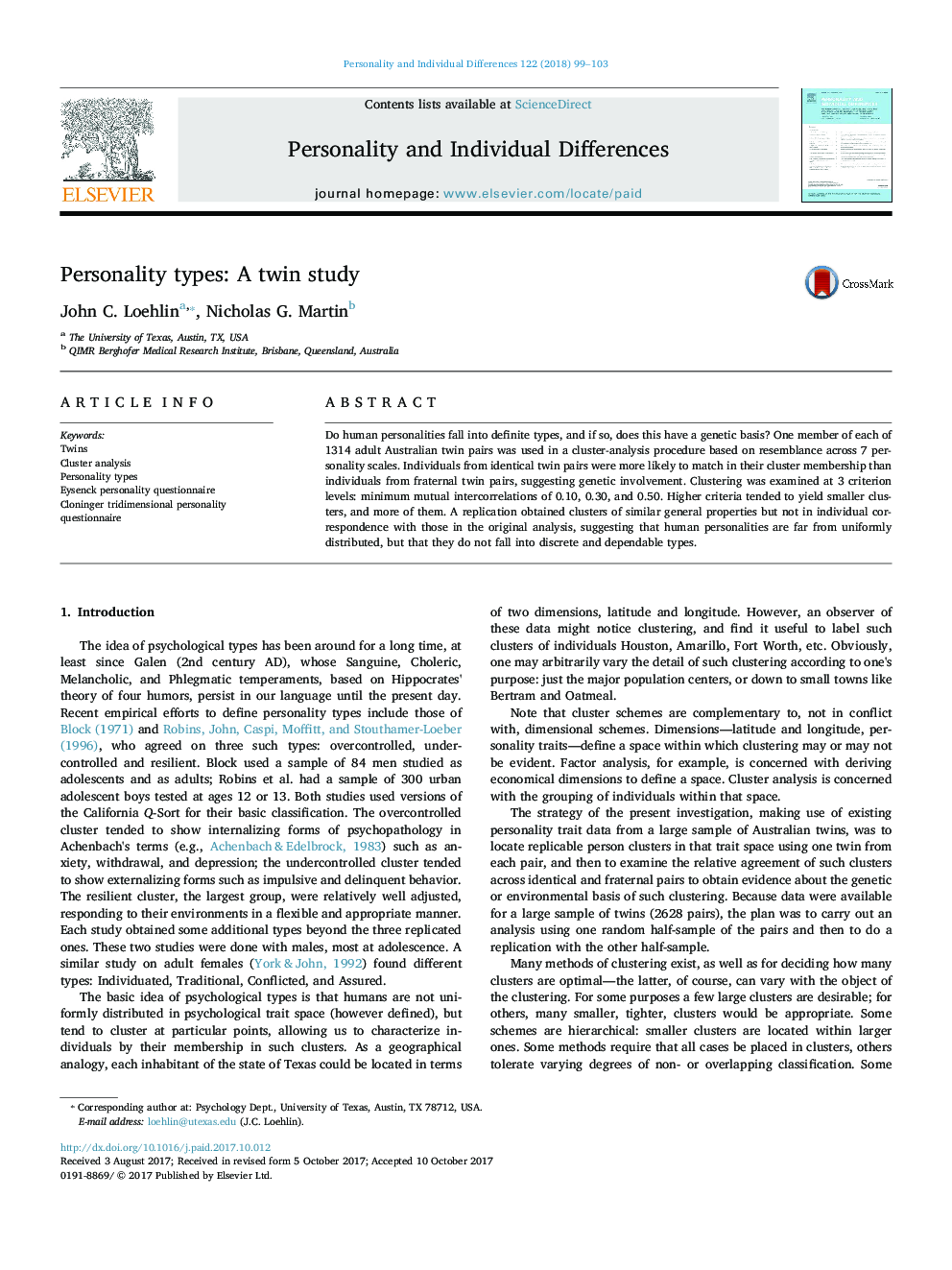| Article ID | Journal | Published Year | Pages | File Type |
|---|---|---|---|---|
| 5035469 | Personality and Individual Differences | 2018 | 5 Pages |
Abstract
Do human personalities fall into definite types, and if so, does this have a genetic basis? One member of each of 1314 adult Australian twin pairs was used in a cluster-analysis procedure based on resemblance across 7 personality scales. Individuals from identical twin pairs were more likely to match in their cluster membership than individuals from fraternal twin pairs, suggesting genetic involvement. Clustering was examined at 3 criterion levels: minimum mutual intercorrelations of 0.10, 0.30, and 0.50. Higher criteria tended to yield smaller clusters, and more of them. A replication obtained clusters of similar general properties but not in individual correspondence with those in the original analysis, suggesting that human personalities are far from uniformly distributed, but that they do not fall into discrete and dependable types.
Related Topics
Life Sciences
Neuroscience
Behavioral Neuroscience
Authors
John C. Loehlin, Nicholas G. Martin,
